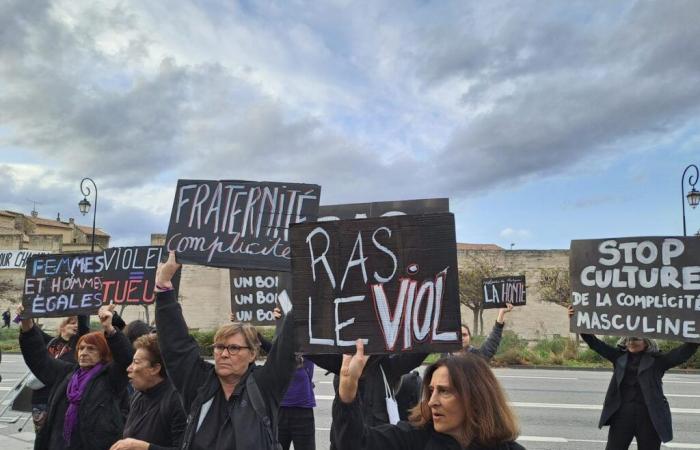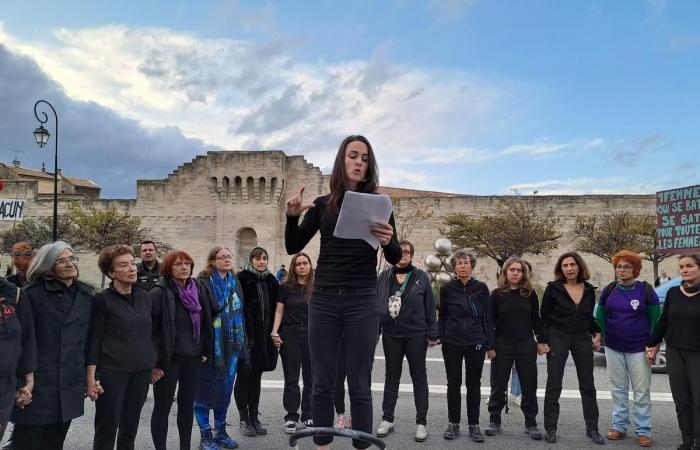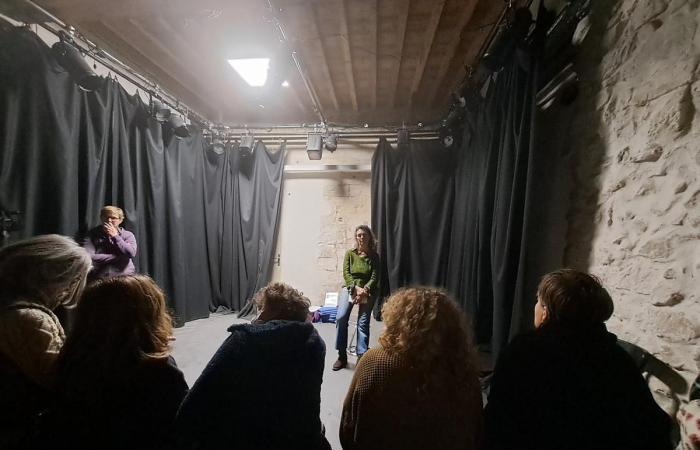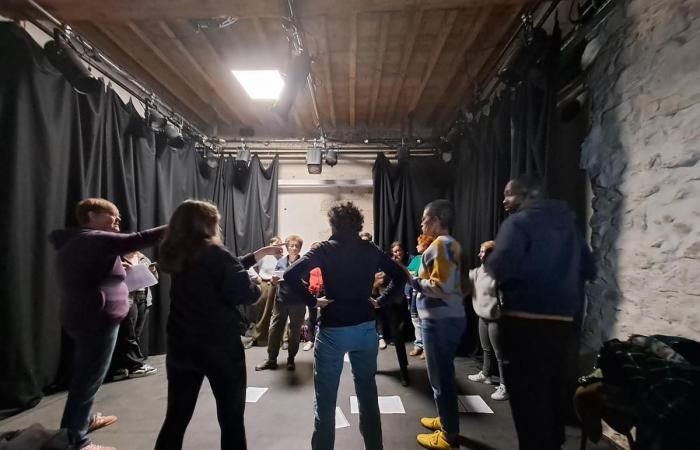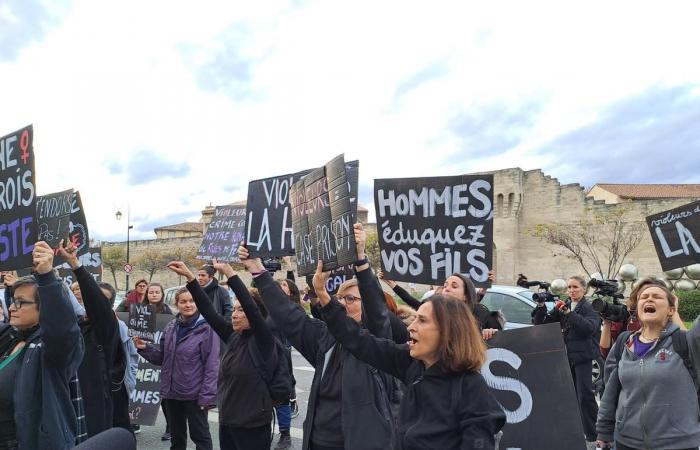This Monday, feminists demonstrated at length in front of the Avignon court on two counts: they came to support the victims of the Mazan rape trial and are particularly mobilized on this day of November 25, World Day against Violence Against Women .
AUDE FORBOS / SO
Cn November 25, World Day to Combat Violence Against Women, the atmosphere was more than electric in Avignon, where the trial of the Mazan rapes has been held since September 2 before the Vaucluse criminal court. Already mobilized since the start of the debates, feminists from different emanations – the Amazons of Avignon, the Brigade of Feminist Actions in Favor of Equality (Baffe), Dare Feminism, in particular – have never given up. They are at war. Especially this Monday at the time of the public prosecutor's requisitions. Inside the court, in the broadcast room, they did not miss a beat, reacting virulently to certain announcements. “Twenty years for everyone! » they chant in the Salle des Pas Perdus.
Mélissa Plaza, ex-pro footballer: “It’s important to fight against rape culture, impunity for rapists, chemical submission”
In the afternoon, they stormed the boulevard in front of the courthouse, brandishing banners and chanting slogans in unison: “Stop rape”, “Men, educate your sons”, “Pruning shears for rapists »… Among the highlights of this “show”, a feminist haka which brought together the activists in a martial choreography interpreting the sequences of the trial. Or the performance, standing on a stool, of the former professional footballer Mélissa Plaza, who dedicated a slam to the attention of the victims. “It’s important to fight against rape culture, the impunity of rapists, chemical submission – Gisèle’s story is also mine,” she confides at the end. Athletes should become more involved, become a little more politicized and use their notoriety to benefit the cause of women. »
AUDE FORBOS / SO
Mélissa Plaza, a former professional footballer converted to slam, joined the movement to offer a slam to the victims.
Consent in the law: why?
The day before, the group of demonstrators met at nightfall to climb the ramparts and hang banners despite the mistral. The streets of the city center are covered with them.
A little earlier still, they had met at the Saint-Michel theater, to rehearse the haka, of course, but also to participate in an evening debate on the inclusion of consent in the law, moderated by Catherine Le Magueresse, doctor in law and feminist researcher. With a group of lawyers, magistrates, researchers and jurists, she is working on this subject which divides feminists. This Sunday evening, the audience was not won over to the cause of consent in the law.
AUDE FORBOS/SO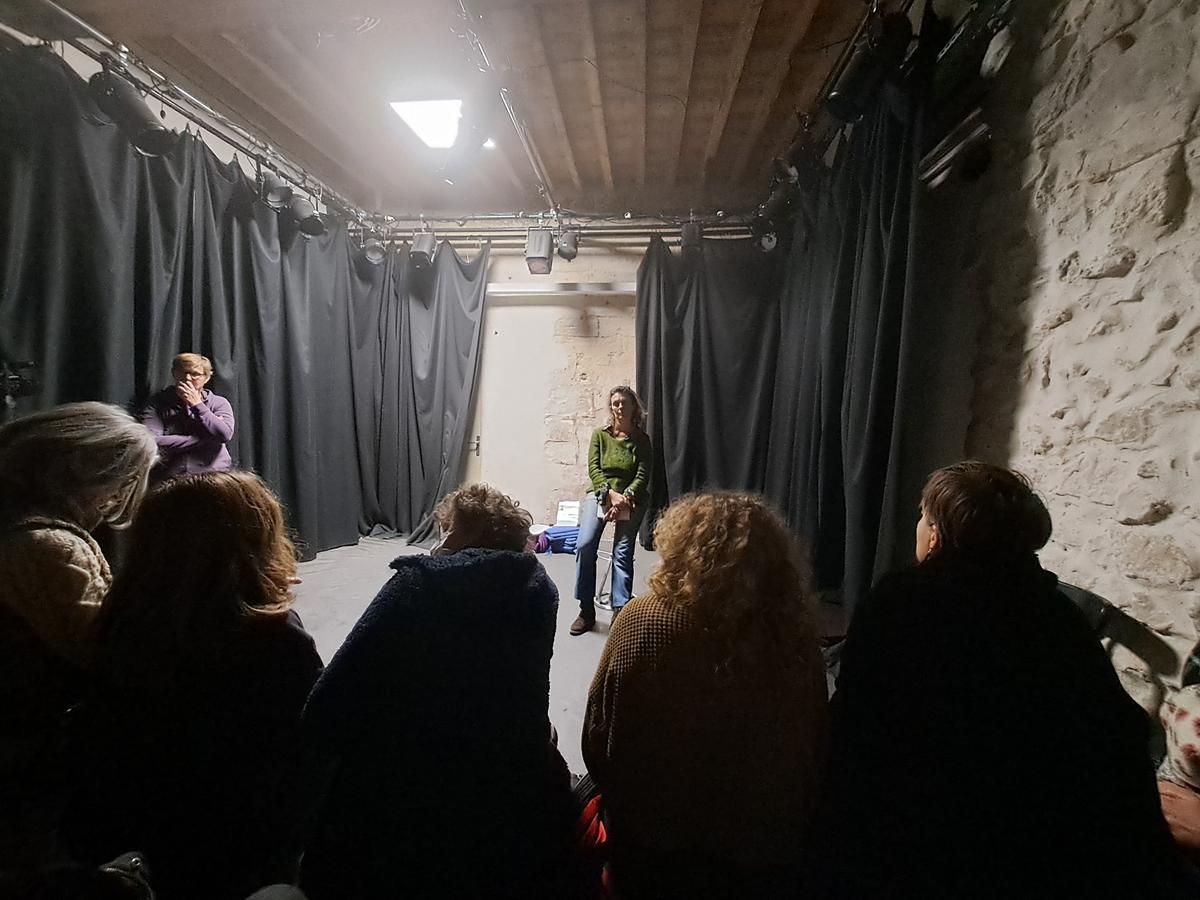
Sunday evening, Catherine Le Magueresse, doctor of law, pleaded with feminists to include consent in the law. The measure rages in the ranks of activists.
HEAR FERBOS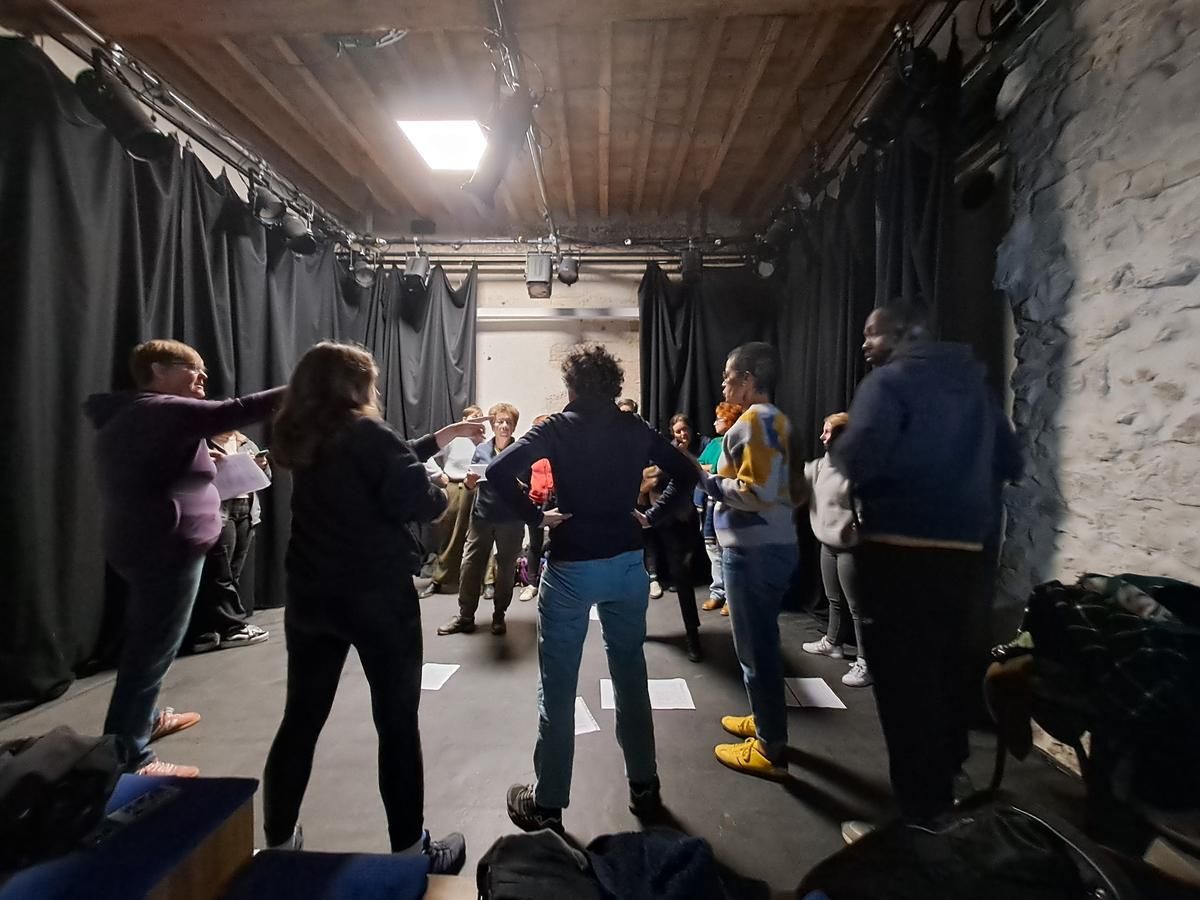
At the end of the evening, the activists repeated a feminist haka which recounts the Mazan rape trial.
AUDE FORBOS/SO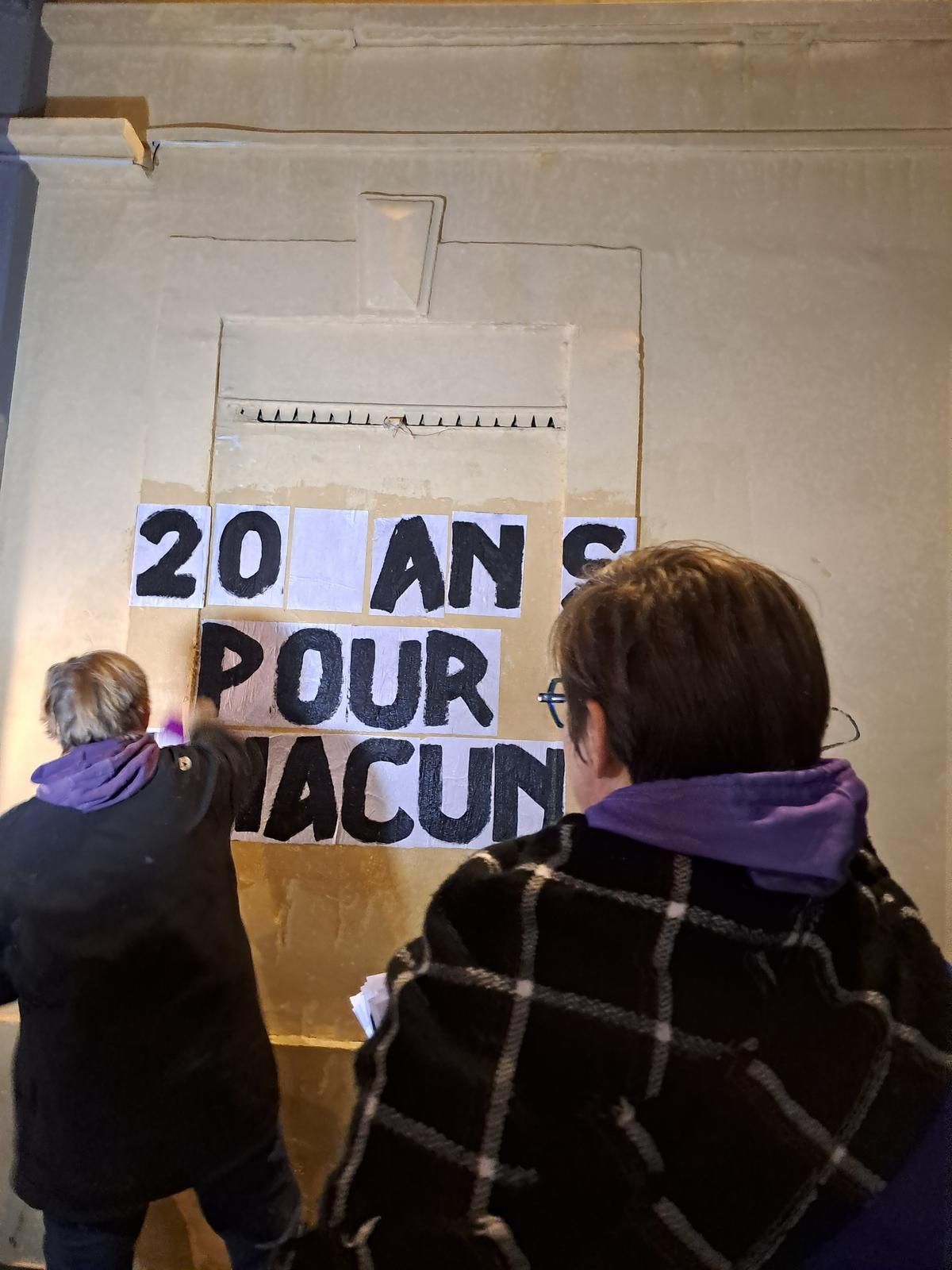
At nightfall, it was time for feminist collages on the walls and ramparts of the city, to the encouragement of passers-by.
“Isn’t this a trap for the victim? » “What if the woman gives her consent at moment M but does not agree with the sequence of events? Should we contractualize all the moments of a sexual act? » asks one of the activists, some of whom come from Switzerland or Canada.
The debate was launched. Catherine Le Magueresse just had to unroll. Explain how she revisited French criminal law in light of the system's flaws. “Do the gaps in the treatment of sexual violence come from the application of the law or is it the law itself that is sexist? » she asks. It is in Canada that she finds the methodology applied to this questioning: “The law cannot carry gender stereotypes. To verify this, we need to look at how it applies specifically to women. ” Answer ? “On any subject, texts work less well for women. »
Criminal law: rooted in patriarchy
Surprising? Not if we consider that “the French legislative arsenal has its roots in the Napoleonic code, or in the purest patriarchy”. And since then, it has changed little. “In the 19th centurye already century, rape is defined as illicit coitus (outside marriage) committed by violence. It remains to be proven that there was violence. » But 70% of victims of sexual violence are stunned. And having added “by constraints, threats or surprises” throughout the case law is not enough.
“Everything starts from the fact that there is a presumption of consent by default, this is only erased if we can prove the violence, threats, constraints or surprises. We therefore expect particular resistance from women. »
The collective of researchers therefore invites us to “reverse the paradigm” by starting from a “positive and feminist consent which would be an agreement free of all coercion. Accordingly, every person must take reasonable and voluntary steps to ensure that there is consent.”
HEAR FERBOS
Shocking slogans, killer sentences from the hearings: in unison, feminists “demand justice”
AUDE FORBOS/SO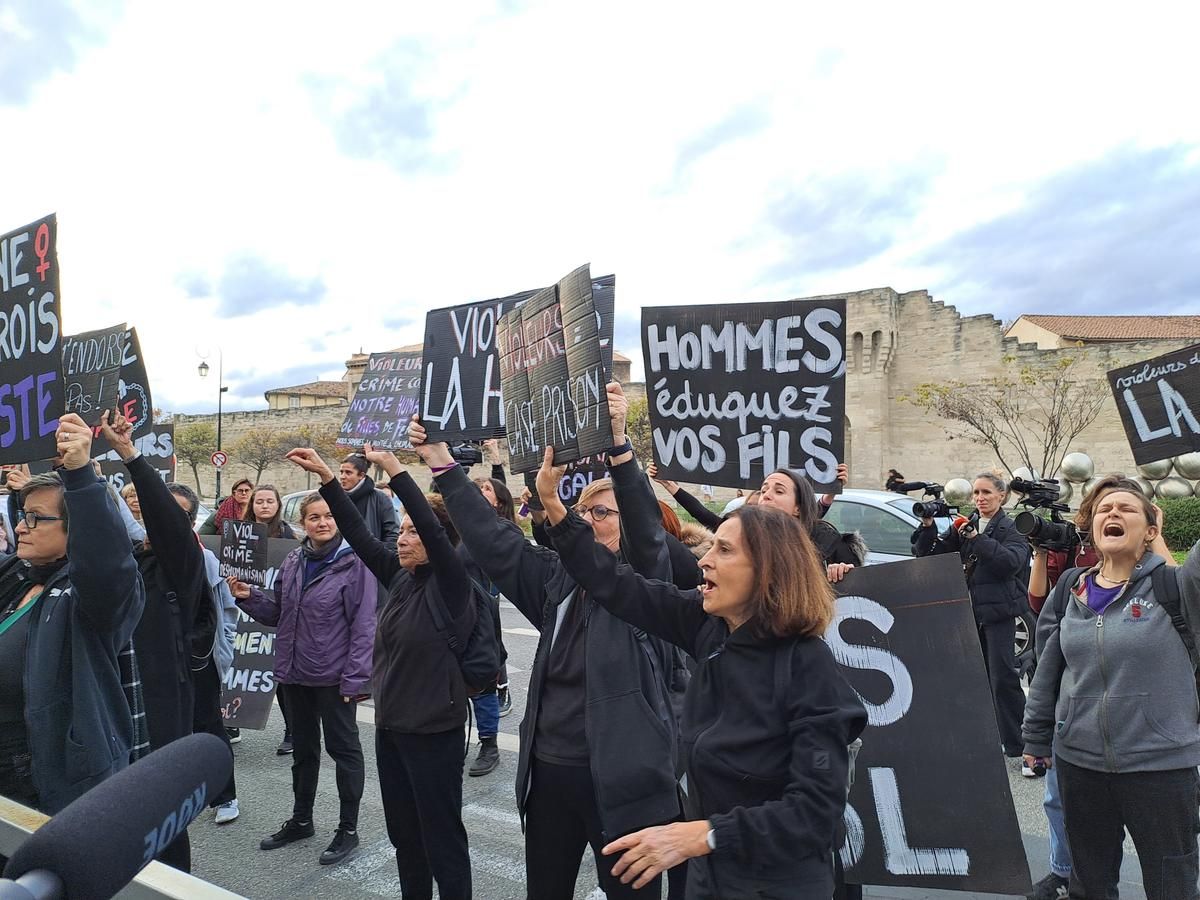
Shocking slogans, killer sentences from the hearings: in unison, feminists “demand justice”
Which could change everything: “From the filing of the complaint until the trial, it would no longer be a question of focusing the investigation and questioning on the victim but on the behavior of the perpetrator. »
In the meantime, feminists will continue to fight.

